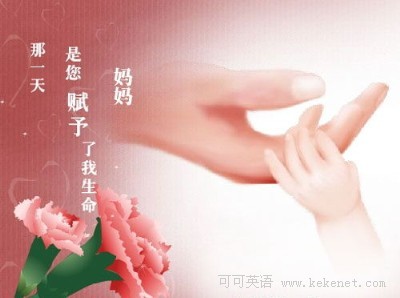
When Mary Van Beke was growing up in the 1920s, she lived in Newark, N.J., and was the oldest of four children. Her parents were immigrants from Europe. And as Mary tells her son, Charles, her parents managed a modest life for the family, until an accident changed everything.
在20世紀(jì)20年代,瑪麗·范·貝克成長(zhǎng)生活在新澤西州的紐瓦克市。她是四個(gè)孩子中的老大。她父母是歐洲移民。正如瑪麗跟她兒子查爾斯說(shuō)的一樣,她的父母一直樸素地生活養(yǎng)家,直到有一天,一切都改變了。
Mary's father, William Luis, was just 29 when he died; Mary was 5."He worked for an electrical company, and he was standing in water — and someone dropped a wire and electrocuted him," she tells Charles.
瑪麗的父親,威廉·路易斯29歲就去世了,當(dāng)時(shí)瑪麗只有5歲。她跟查爾斯說(shuō),“他在一家電氣公司工作,當(dāng)時(shí),他站在水中,掉下一截電線,把他觸死了。”
When William died, Mary's mother was pregnant with her youngest sister."And so my mother had to go out to work, wash clothes and clean house to try and feed four children," she says.As for clothes, the children wore whatever Mary's mother, Eva Hornyak, managed to bring home from the households where she worked.
威廉死時(shí),瑪麗的媽媽身懷六甲,腹中是瑪麗的小妹妹。她說(shuō),“從此,我媽不得不出去工作,替別人洗衣服、打掃房子,以養(yǎng)活我們四個(gè)孩子。”瑪麗的母親,伊娃·霍亞克從戶主那里討來(lái)什么衣服,她的孩子就只能穿什么衣服。
"I don't ever remember going to the store to get a pair of shoes, 'cause Mama couldn't afford it," says Mary, now 94.Still, her mother, who had grown up in Czechoslovakia, taught Mary and her siblings to take pride in themselves."I'm not saying that we looked dowdy," Mary says. "She said, 'You don't have to be dirty to be poor.' I always remember that."
現(xiàn)年94歲的瑪麗說(shuō),“在我的記憶中,我們從未進(jìn)商店買過(guò)一雙鞋,因?yàn)閶寢屬I不起。”然而,在捷克斯洛伐克長(zhǎng)大的媽媽還是教導(dǎo)瑪麗和她的姊妹們要以自己為榮。“我是說(shuō),我們看上去并不邋遢,”瑪麗說(shuō)道,“媽媽說(shuō)過(guò),‘雖然窮困,也須整潔。’我對(duì)此念念不忘。”











